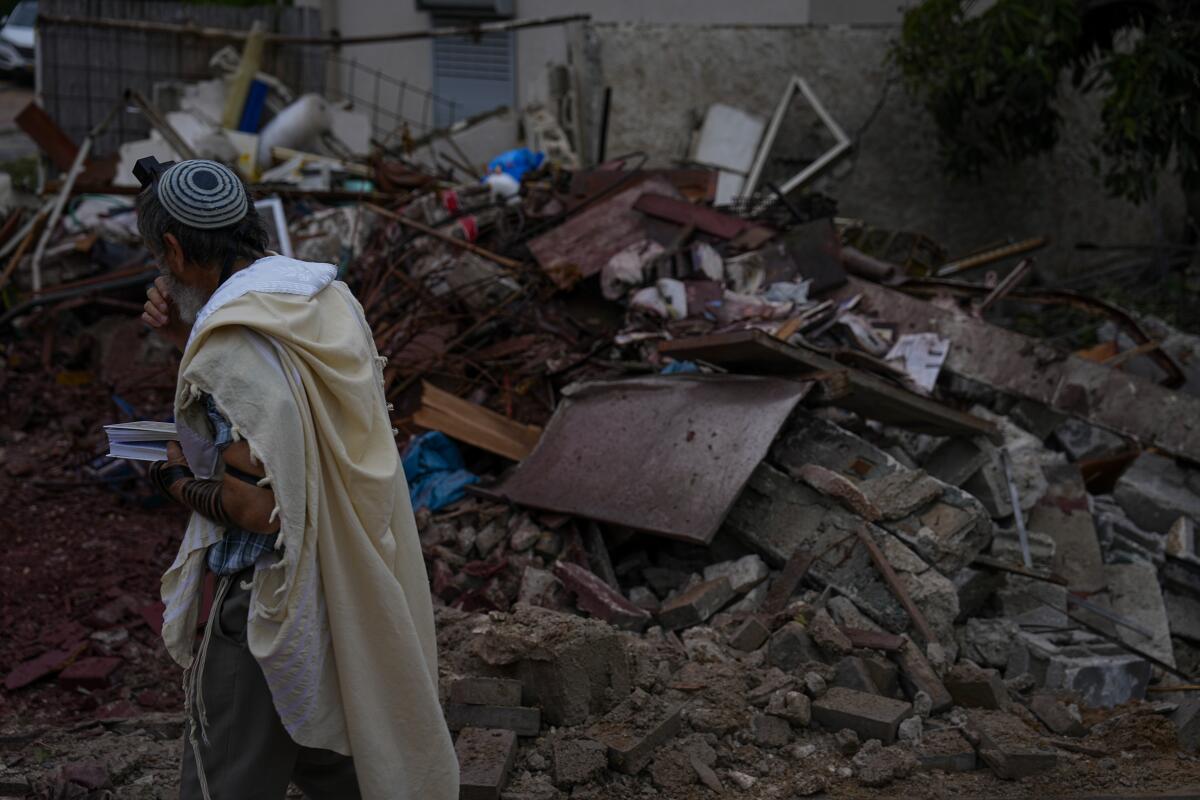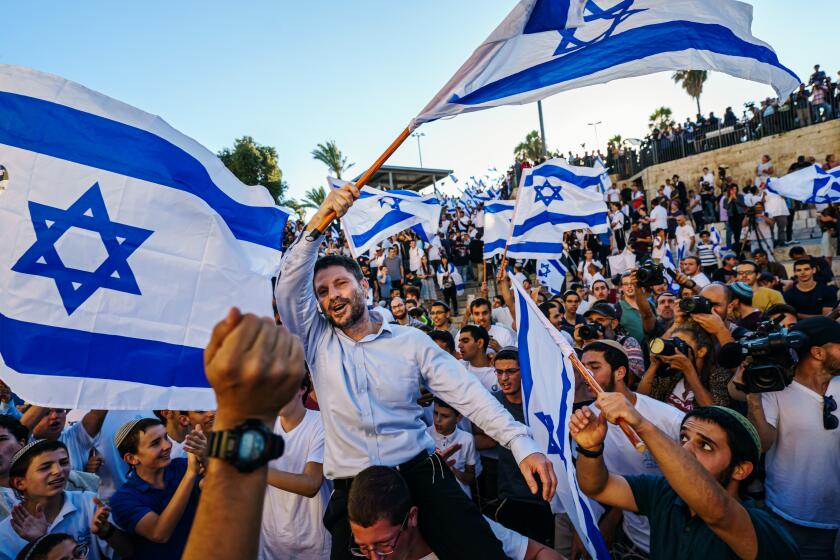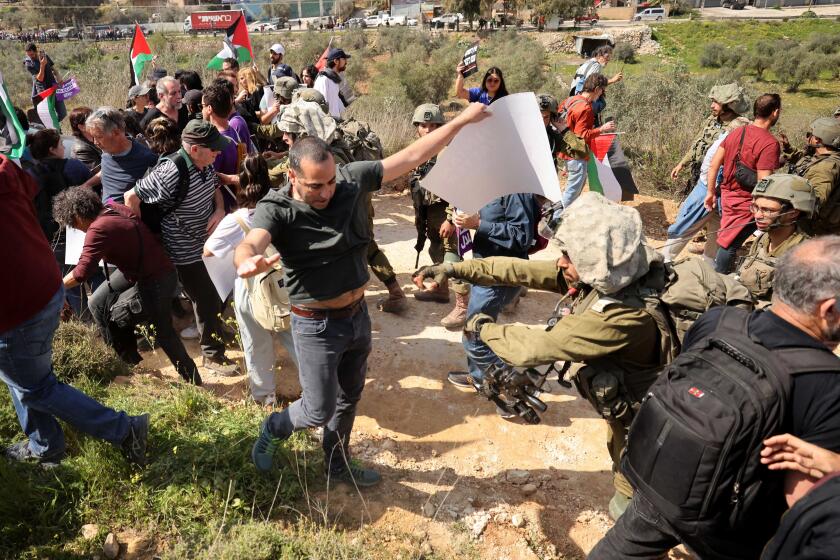Opinion: Could the Israeli-Palestinian cease-fire end a cycle of violence?

Now that there’s an Israeli-Palestinian cease-fire in place this week, brokered with the help of Egypt, it’s critical that the two sides not stop with this short-term agreement.
For this cease-fire — in fact, any cease-fire — to become permanent, we need a political process to begin immediately. The alternative is to keep seeing Israelis and Palestinians traumatized and killed as militants and politicians practice one-upmanship against each other.
It would be easy to place blame on this or that side. It’s possible to list the number of Palestinian rockets that were launched at Israel and the number of targets that Israel attacked. But what good would that do?
In a speech in France, Israeli Finance Minister Bezalel Smotrich called Palestinians an invention, adding fuel to recent violence.
The Palestinian-Israeli cycle of violence has become so normalized that it no longer elicits serious interest from the world community. Whether one side uses precision rockets that kill children and women or the other uses indiscriminate rockets that cause injury, death and destruction, the resulting carnage is the same.
Those on each side scream that there is no partner on the other side, when what they mean is that there is no partner that fits their own perception of a good counterpart. But peace is made with enemies.
Resorting to violence, whether it is extrajudicial assassination or indiscriminate shelling, is not the answer. Both are war crimes and perpetrators must be held accountable. But the conflict is not symmetrical, and so solutions might require more from one side than the other. Anyone who really wants to end this conflict must invest time and effort into forcing everyone back to the negotiating table.
In all cases, some fundamental principles need to be established. Self-determination is a right for all people, and the application of this right cannot be limited to one side of the conflict. It is impossible to talk about Israel’s political rights without equally respecting Palestinian political rights.
A solution to the conflict requires an end to occupation, allowing Palestinians to live in freedom whether this is in their own sovereign and contiguous state or in a single state where all citizens have equal rights. The current discriminatory situation with one side occupying the lands of the other side must stop.
Jews who love Israel must condemn the country’s support of violent actions against Palestinians. Past victimhood should not be perverted into a right to harm.
All sides have to commit to refraining from actions that can affect the outcome of negotiations. This includes stopping Israeli settlement expansion, and both sides must ensure that civilians are protected from violence — from the Israeli army and settlers as well as from Palestinian paramilitary organizations.
There has to be a commitment to discussing in good faith the future of Jerusalem, settlements, refugees and borders. And there needs to be a Palestinian commitment to security coordination, conditional on Israel respecting Palestinian sovereignty in major cities. Something as basic a right as a free passage between Gaza and the West Bank must be respected.
No one is naïve enough to think that these commitments will happen overnight. Any political process — even to begin a process — will need the support of the people of the region and the international community. Staying away from a conflict in which one side is powerful and the other side weak (but not willing to surrender) will not produce any kind of solution.
We cannot afford to accept the idea that we’re doomed to a never-ending conflict. This would be a cop-out. But we need to go beyond politically correct statements and positions if we’re to find a way out.
Despite all the problems and the decades of war, there is still a genuine yearning for peace. While in the middle of a cycle of violence, all sides are polarized, and everyone returns to their known positions and embraces the policies of their tribe, right or wrong. This cannot go on.
Palestinians and Israelis have been unable to find a comprehensive solution. Right now, everyone is taking sides while living in the middle of the bloodshed. What is needed is help from outside to get us out of the mess we are in.
For the sake of our children, the international community has to resume a role in helping to break this cycle of violence. Yes, it will take sustained effort. But Israelis and Palestinians cannot do it alone.
Daoud Kuttab is a Palestinian journalist and a former professor of journalism at Princeton University. @daoudkuttab
More to Read
A cure for the common opinion
Get thought-provoking perspectives with our weekly newsletter.
You may occasionally receive promotional content from the Los Angeles Times.












